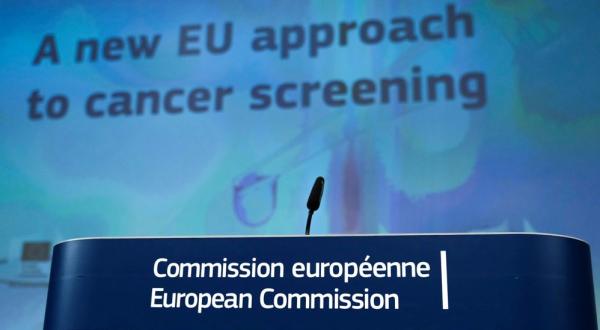"Latvijas formula": instability in the US opens up opportunities for Latvian research
The trade and tariff wars initiated by the President of the United States, Donald Trump, have brought significant changes to the global economy. As a result, the US no longer appears as attractive as it once was in terms of innovation, cutting-edge science, and related entrepreneurship. While this represents a loss, it also creates new opportunities for the advancement of science and the economy in Latvia, emphasise professors from Latvian universities.
On Saturday, 24 April, the TV24 series Latvijas formula aired an episode titled "Kā veicināt inovācijas un zinātnes sadarbību ar biznesu?" (How to promote innovation and scientific cooperation with business?), focusing on innovation in Latvia and the vital role of science in business. The discussion was hosted by Prof. Mārcis Auziņš from the University of Latvia (UL), and featured Assoc. Prof. Guntars Kitenbergs, Vice-Rector for Research at UL; Assoc. Prof. Dins Šmits, Vice-Rector for Academic Affairs at Rīga Stradiņš University (RSU); and Prof. Sandra Muižniece-Brasava, Head of the Technology and Knowledge Transfer Department at the Latvia University of Life Sciences and Technologies.
The participants examined whether recent changes in US research funding could create new opportunities for Europe and Latvia. Topics included the availability of funding, the need to reduce bureaucracy in research, the role of universities in building an innovation ecosystem, improved access to venture capital, and the importance of a more flexible academic career model.
- Part I of the episode
- Part II of the episode
Mārcis Auziņš opened the discussion: ‘If I may put it this way, we have long looked to the United States when discussing innovation, cutting-edge science, and its ties to business. Now, however, I would say that the situation has changed. We recently read that Harvard University is suing the Trump administration over drastic funding cuts. As a member of the American Physical Society, I now receive regular emails urging us to protest in various forums and formats. It is quite possible that the US’s capacity for research and innovation may decline. The question is whether this opens up a niche and new opportunities for us here in Europe, and specifically in Latvia.’
Dins Šmits, RSU Vice-Rector for Academic Affairs, goes on to say: ‘I would prefer not to express assumptions about future developments in the US. That engine of innovation or creativity, if you will, remains very powerful and well-financed, including through non-governmental sources. So, we will see how it all unfolds. As for us,
we simply need to keep doing our homework. That means focusing on the core tasks of universities – research, the creation of new knowledge and innovation, and transfer of such knowledge to industry so that they become real products and services. We simply have to do what is in our power.
What is lacking in Latvia, and perhaps in Europe more broadly, is insufficient access to capital and talented people. If some of the capital holders decided to invest more heavily in Europe, it would certainly work in our favour. Similarly, we, scientist, should be more proactive in presenting Latvia as a place where research opportunities exist.’
Prof. Sandra Muižniece-Brasava added: ‘I would say that with every ending comes a new beginning. We are a small country compared to the United States, so our investments must focus on young people – they are our future. This is especially important now, in a global environment undergoing so much change. There will be changes, and they will be significant.’
Prof. Guntars Kitenbergs noted: ‘I see many opportunities stemming from the fact that, as research universities, we now have a clearer role and mission. What is happening in America creates additional opportunities for us – opportunities that can support long-term development. The instability unfolding there might also prompt key figures to consider career opportunities here in Latvia. That is why I truly believe we must be proactive, particularly in fields where we already have a strong foundation. A good example from the University of Latvia is quantum technology, which could serve as a platform to build a value chain – attracting both local and international talent in this area.’
Source: jauns.lv
Related news
 From Data Harmonisation to Artificial Intelligence: EUCanScreen Modernises Cancer Screening Across EuropePublic Health, International Cooperation
From Data Harmonisation to Artificial Intelligence: EUCanScreen Modernises Cancer Screening Across EuropePublic Health, International Cooperation


